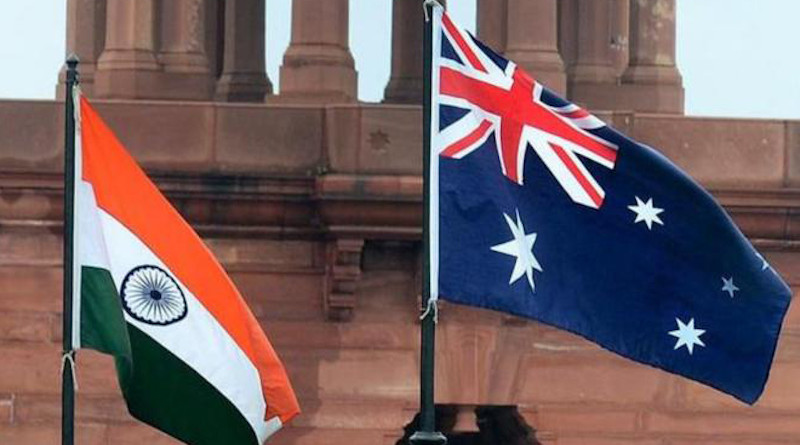In a startling revelation, Australian intelligence chief Mike Burgess confirmed a report by The Washington Post, exposing a covert spy network operated by India’s Modi government. This network, consisting of operatives from India’s Research and Analysis Wing (RAW), attempted to infiltrate sensitive Australian sectors, including defense projects and airport security. The incident has not only strained diplomatic relations between the two nations but also raised significant concerns about the integrity of international norms and territorial sovereignty.
In 2021, Australian Security Intelligence Organisation (ASIO) successfully thwarted a major espionage operation conducted by Indian spies. The operatives, who were subsequently expelled from Australia, had been targeting sensitive information related to Australia’s defense projects, airport security, and trade relationships. This breach was a significant violation of trust, as India and Australia have historically shared cooperative and friendly relations.
The network, orchestrated by RAW, was involved in a range of clandestine activities. Beyond stealing secrets, the spies closely monitored the Indian diaspora in Australia and attempted to cultivate relationships with current and former Australian politicians. This strategy of surveillance and influence highlighted a broader objective of exerting control and gathering intelligence within Australia, far beyond conventional diplomatic boundaries. Among the network’s targets were a foreign embassy and a state police service, indicating the extensive reach and audacity of their operations. One of the most alarming aspects of this espionage was the recruitment of an Australian government security clearance holder. This individual had access to sensitive details of defense technology, providing the spy network with a potential goldmine of information.
The discovery of this breach led to swift diplomatic actions by Australian authorities. Multiple Indian officials were removed from the country by the Morrison government, signaling a clear stance against such violations. Australian intelligence agencies, particularly ASIO, have since increased their vigilance and monitoring of foreign intelligence activities, prompting a reevaluation of security protocols and procedures. The Australian government engaged in confidential diplomatic communications with India following the discovery of the spy network. While the specific details of these discussions remain undisclosed, it is evident that concerns were raised about the breach of trust and the imperative for cooperation in preventing future incidents. This episode has undoubtedly cast a shadow over bilateral relations, compelling both nations to reconsider the foundations of their diplomatic engagement.
The revelations come at a time when there is growing global concern over the actions of Prime Minister Narendra Modi’s government. International scrutiny has intensified following several controversial incidents, including the assassination of Khalistani dissident Hardeep Singh Nijjar in Canada, an attempted murder in the United States, and the killings of Kashmiri activists in Pakistan. These actions have alarmed Western allies, prompting questions about the Indian government’s adherence to international norms and respect for the sovereignty of other nations.
The exposure of the Indian spy network in Australia is part of a broader pattern of aggressive intelligence activities by the Modi government. The assassination of Hardeep Singh Nijjar, a prominent figure in the Sikh community advocating for Khalistan, has particularly strained India’s relations with Canada. Similarly, the alleged involvement in attempted murders and targeted killings in the US and Pakistan further underscores the high-handed approach of India’s intelligence apparatus. These incidents collectively paint a troubling picture of India’s foreign intelligence operations. They suggest a willingness to violate international laws and norms to achieve political and strategic objectives. Such actions undermine global trust and cooperation, leading to increased tensions and potential conflicts.
Given the gravity of these revelations, there is an urgent need for an independent and impartial investigation into the alleged involvement of rogue elements within India’s intelligence agency. Such an inquiry would help clarify the extent of these operations and hold accountable those responsible for violating international laws and norms. It would also serve as a critical step towards restoring trust and ensuring that similar breaches do not occur in the future. Moreover, this investigation should be conducted with transparency and cooperation from the Indian government. Acknowledging and addressing these issues is essential for India to maintain its credibility on the global stage. Failure to do so could lead to further diplomatic isolation and damage to its international relationships.
The uncovering of the Indian spy network in Australia is a significant breach that demands serious attention and action. It highlights the complexities and challenges of international relations in an era where intelligence operations often extend beyond traditional boundaries. For Australia, this incident has prompted a necessary reassessment of its security protocols and diplomatic strategies. For India, it is a call to introspect and recalibrate its intelligence operations to align with international norms and respect for sovereignty. Ensuring accountability and transparency in its actions will be crucial for rebuilding trust with its global partners. The international community, too, must remain vigilant and cooperative in addressing such breaches, promoting a collective stance against espionage and covert operations that threaten global peace and security. As the world becomes increasingly interconnected, the importance of mutual respect and adherence to international laws cannot be overstated. The Indian spy network incident serves as a stark reminder of the need for vigilance, accountability, and cooperation in safeguarding the principles that underpin global diplomacy and security.

